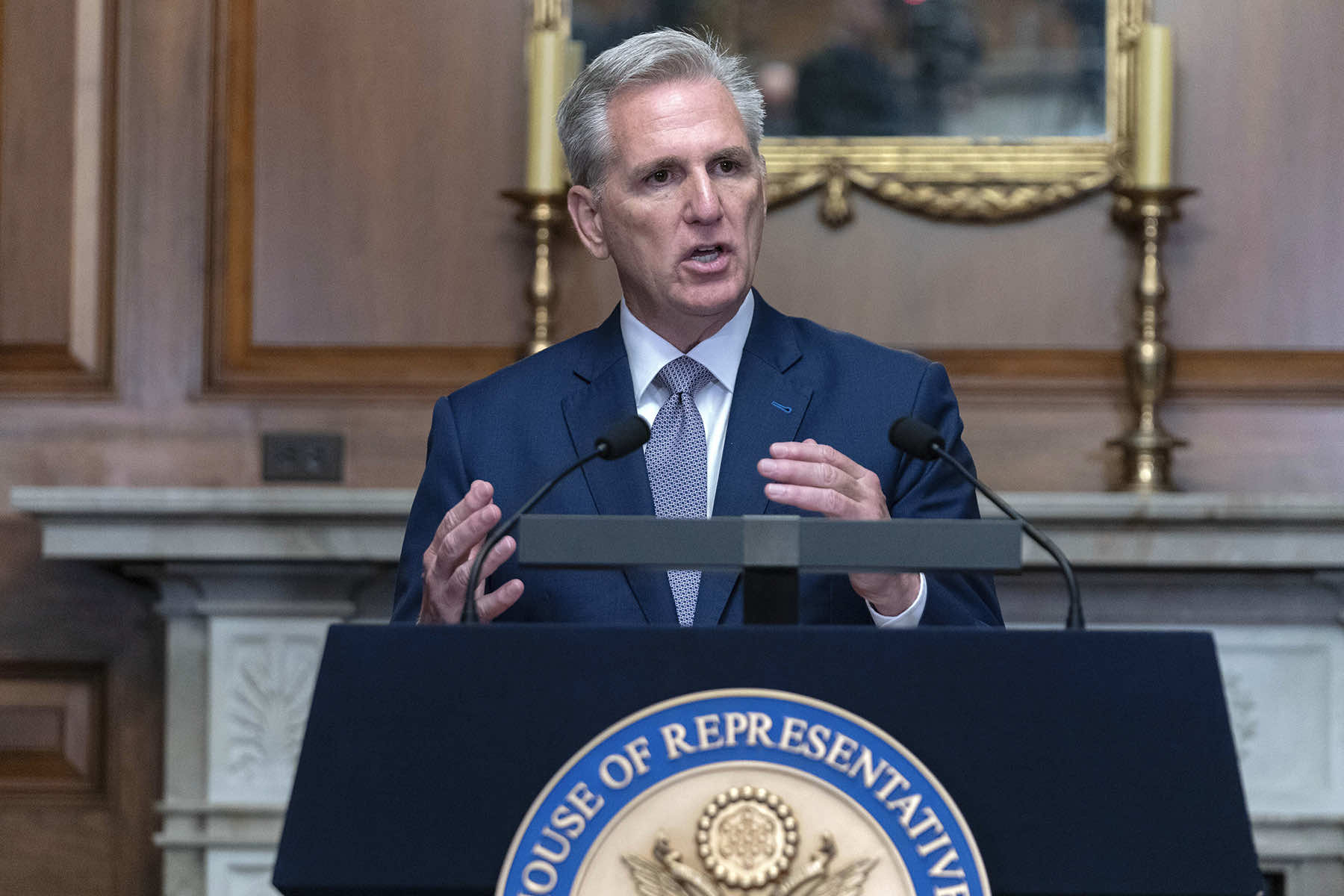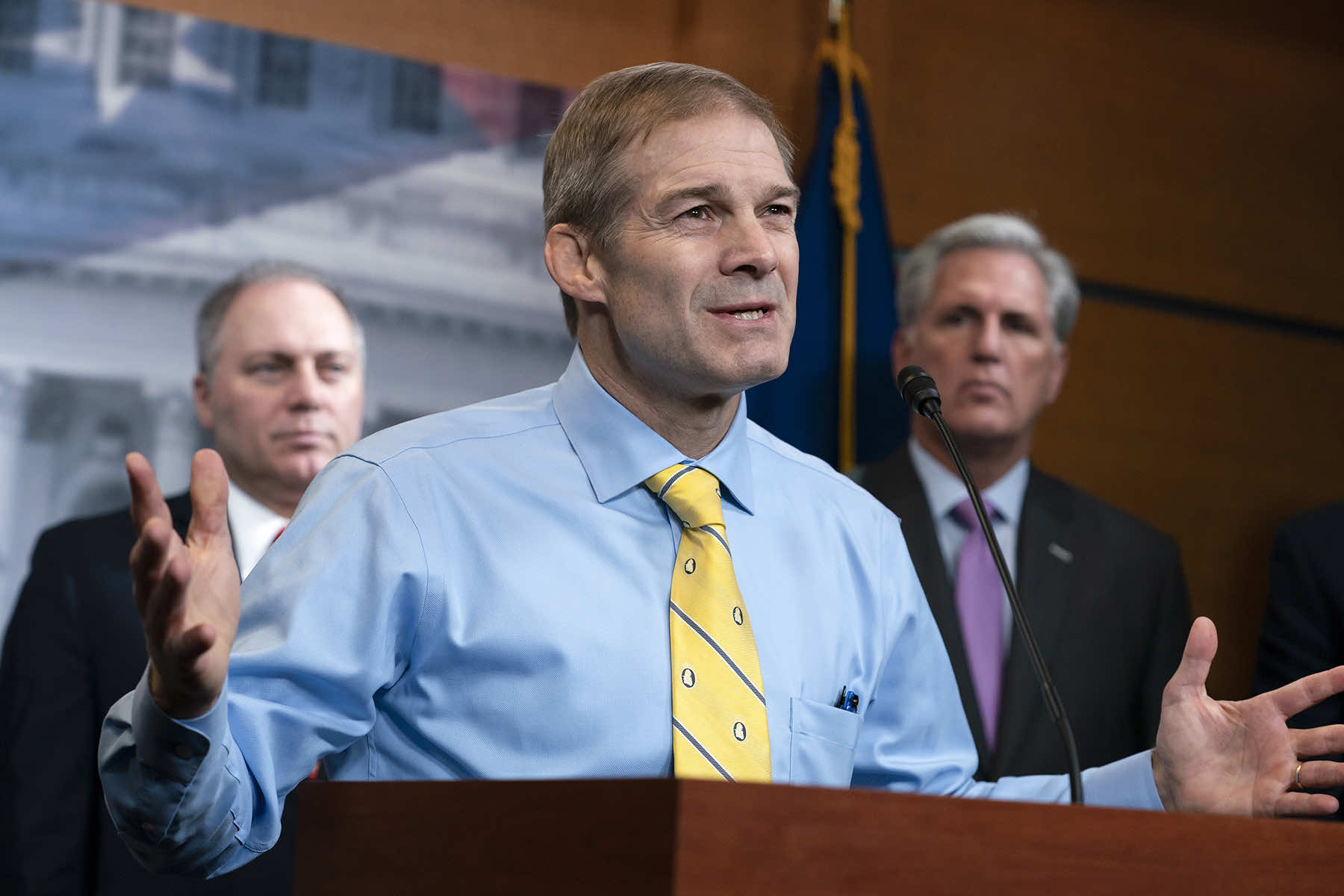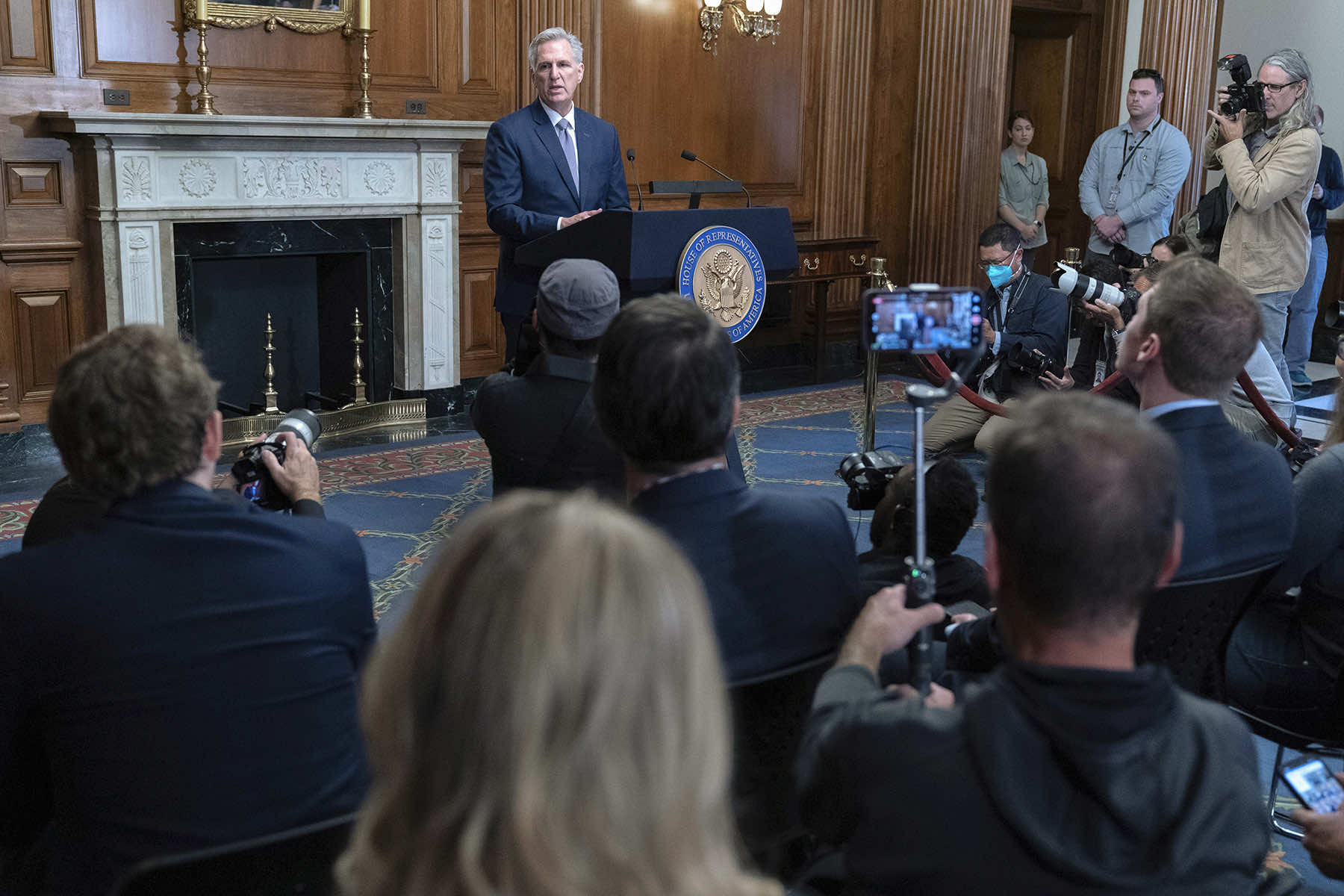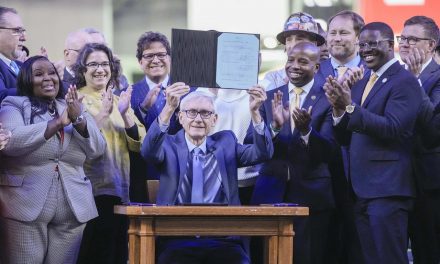
Republicans have no clear idea who will be the next U.S. House Speaker, leaving an unprecedented power vacuum in Congress and severely limiting America’s ability to quickly respond to the crisis in Israel, or any number of other problems at home and abroad.
The ousted former Speaker, Kevin McCarthy, quickly jumped into the void on October 9, positioning himself as a de facto Republican leader even though his colleagues toppled him from power. But it is not at all clear if McCarthy could seriously make a comeback — or if one of the other Republicans seeking the gavel, Steve Scalise or Jim Jordan, can be elected Speaker as their majority stumbles into infighting.
“The House is without a Speaker at a time of crisis, both at home and abroad. There is the sudden war in Israel that is demanding attention here in Washington. Without a Speaker of the House, Congress cannot provide aid to Israel. It cannot even pass a simple resolution that House Republicans have put forward to say that the House stands with Israel. This is an unprecedented situation, and it could grow worse if the House Republicans are unable to choose a new Speaker,” said Lisa Mascaro, chief Congressional correspondent for the Associated Press.
The upheaval in the House puts Congress at a crossroads during a moment of crisis, the first time in history it has booted a Speaker from power, operating without a Constitutional officer, second in line to the presidency. House business, and with it most congressional action, has come to a standstill.
There are unanswered questions about what, if anything, the Congress can do with only an interim Speaker Pro Tempore, a position created to ensure the continuity of government after the September 11, 2001, terrorist attacks.
At risk is immediate aid to Israel along with passage of a resolution that would show U.S. support for Israel and condemnation of Hamas for the attack as the region is now engulfed in war.
And there are broader demands on Congress, including Ukraine’s requests for aid as it fights Russia and the need to fund the U.S. government again by Nov. 17 or risk a federal shutdown. The Senate meanwhile is also out of session, on recess until next week.
“The world is watching,” Representative Michael McCaul, a Texas Republican who chairs the House Foreign Relations, said he told the meeting. “They are seeing a dysfunctional democracy.”
The House Republicans hold just a slim majority and they are considering rules changes to avoid another spectacle electing a new speaker, like the 15 rounds it took McCarthy in January to seize the gavel.
While the full House, including Democrats and Republicans, ultimately votes on the new Speaker, the position usually falls to a person from the party with the House majority.
One idea is to require the candidate for House Speaker to reach the 218 majority threshold during internal voting behind closed doors before the Republicans bring the vote up publicly on the House floor.
Another idea is to change the rule that allows a single lawmaker to make a “motion to vacate” the office — which is the rare procedural tool Gaetz used to force a vote that ousted McCarthy. In previous years, it required more the one lawmaker to make the motion.
But most Republican lawmakers think such changes might not be achievable in time for a Speaker’s vote, and are trying to move on from the chaos that has thrown their majority into turmoil.
“People are going to be upset,” said Republican Representative Max Miller of Ohio. “We will find a way forward.”
For now, no consensus candidate who could bridge both parties seems at all within reach. Meantime, Representative Patrick McHenry, R-NC, has been named as Speaker Pro Tempore, and brushed back questions about staying in the job longer.
The rules around the temporary Speaker position have been untested before, though they appear to indicate the main power in the role is to ensure the election of a new Speaker.
But if House Republicans are unable to quickly agree on a Speaker, McHenry could be in the position for some time. Any moves McHenry makes in the temporary position have the potential to become precedent-setting for the House.
McHenry is viewed as a serious legislator, with nearly 20 years in office, even though his first act was to boot Speaker Emerita Nancy Pelosi from her private office at the Capitol.

















